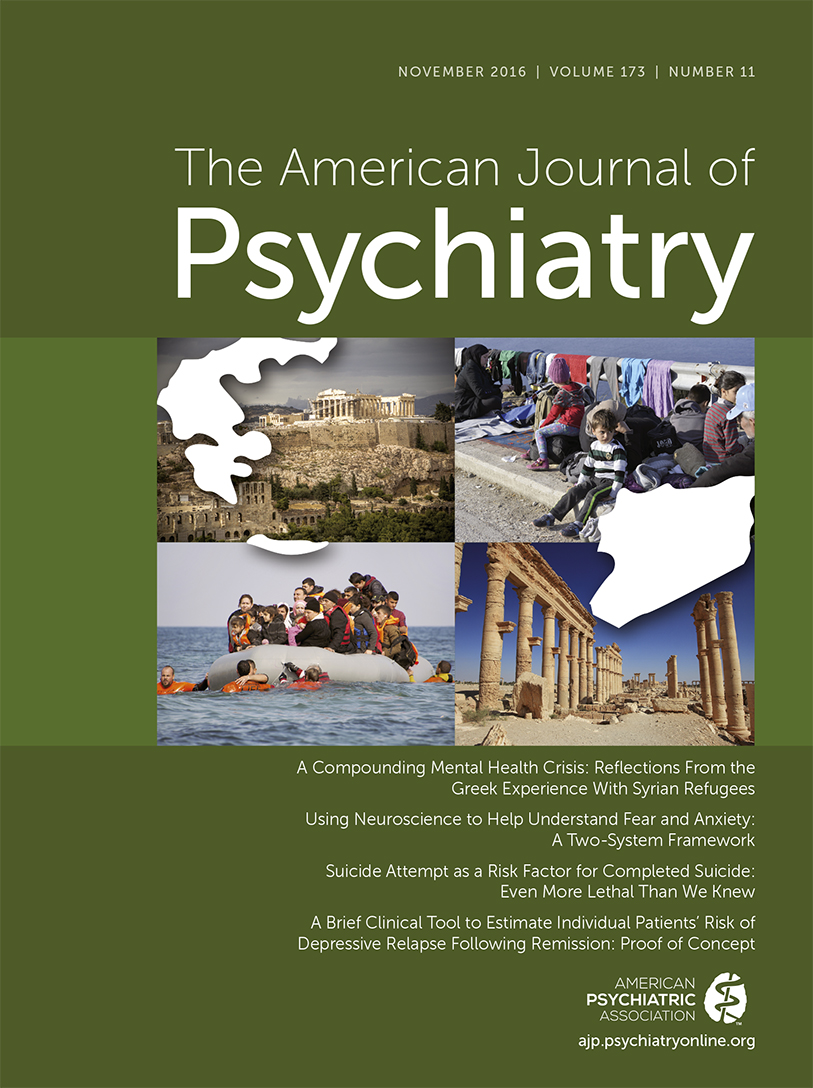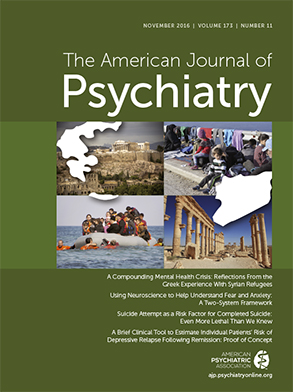To the Editor: Smid and Boelen rightfully highlight the importance of identifying standards for diagnosing clinically impairing grief. This issue has been of clinical interest within the United States and internationally, leading to the proposed DSM-5 persistent complex bereavement disorder criteria, as well as newly defined ICD-11 criteria for a similarly impairing grief-related condition. Such criteria will enable clinicians to better identify cases requiring evidence-based treatment.
However, Smid and Boelen misconstrue several conclusions in our article. Nowhere in the study do we recommend the use of complicated grief criteria over criteria for persistent complex bereavement disorder or prolonged grief disorder. Our results compare the performance of the three criteria sets (with specific focus on the newly proposed persistent complex bereavement disorder criteria) using a stated methodology, and we describe the accuracy with which the criteria sets include and exclude putative clinical cases and noncases, respectively. In the article’s conclusion, we focus on how the persistent complex bereavement disorder criteria could be altered to improve their relevance for clinical use, namely by reducing the criterion C requirements.
Smid and Boelen refer to the analysis as a sensitivity and specificity analysis, which it was not. We conducted a conditional probability analysis examining a putative clinical sample and nonclinical sample. In fact, Smid and Boelen argue that the analysis should have been conducted as a sensitivity and specificity analysis divided into two groups: a clinical and a nonclinical sample. However, this was not the purpose of our analysis. Our purpose was to examine the performance of each criteria set in indisputable clinical and nonclinical samples. While Smid and Boelen are correct in suggesting that a sensitivity and specificity analysis would be helpful, the challenge remains that a cutoff for clinical grief relative to nonclinical grief is unknown and would likely be highly disputed. Despite their criticism that we removed “borderline” cases, Smid and Boelen do not adequately address why the persistent complex bereavement disorder and prolonged grief disorder criteria do so poorly in identifying cases that few would argue are clinically impaired (e.g., those with scores ≥30 on the Inventory of Complicated Grief and ≥20 on the Work and Social Adjustment Scale).
Smid and Boelen are also critical of the methodology we employed. They state that the higher level of accurate inclusion in the complicated grief criteria set is a result of two issues. First, Smid and Boelen state that 17 Complicated Grief Questionnaire items were relevant to the complicated grief criteria but that only 12 Complicated Grief Questionnaire items were relevant to the prolonged grief disorder criteria. While this is true, 17 Complicated Grief Questionnaire items were also relevant to the persistent complex bereavement disorder criteria, yet that criteria set still performed poorly in identifying putative cases (53.3%) compared with the complicated grief criteria set (91.9%). The authors fail to explain this important finding. To examine the possible influence on our findings of including multiple Complicated Grief Questionnaire items for several complicated grief criteria, we reran the analysis using only one Complicated Grief Questionnaire item for each complicated grief criterion (totaling 12 Complicated Grief Questionnaire items) and found that this did not change our results. Secondly, Smid and Boelen criticize the study because the number of criteria in each criteria set varies, likely changing the outcome of the analysis. However, this criticism is tautological and is precisely the point of the study. The number of criteria defined by each of the proposed criteria sets is a critical consideration in understanding how best to identify clinically impairing grief.
Smid and Boelen’s letter fails to acknowledge that our article includes important findings that were based on sound methodology. Studies such as ours that compare performance of proposed criteria sets in community and clinical samples are essential in order to understand how best to define diagnostic criteria for this condition. Other studies could be conducted using alternate methodologies (to include predictive validity) to further examine proposed criteria and could be compared with our findings. However, this letter neither advocates for nor provides such a contribution.

